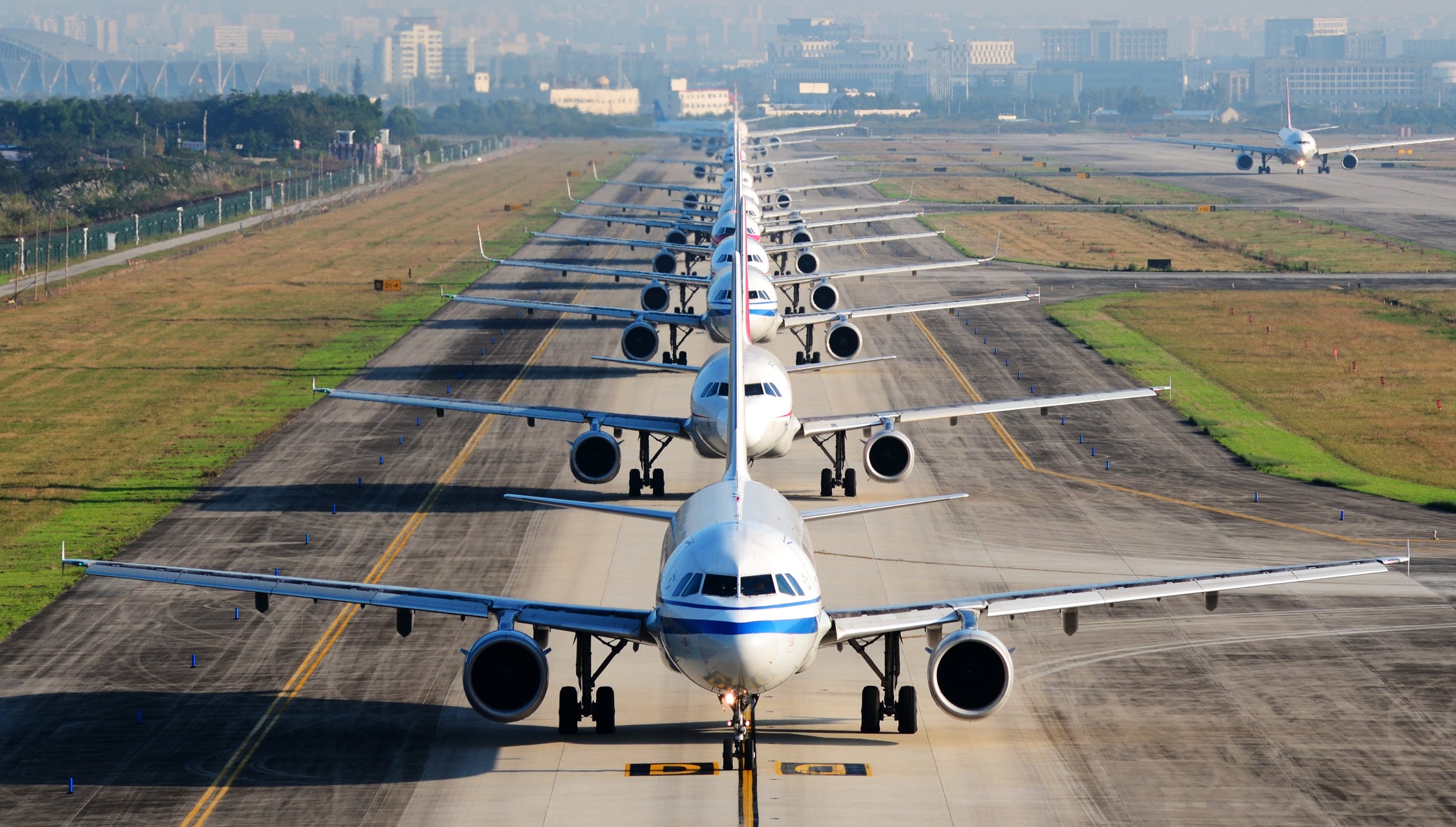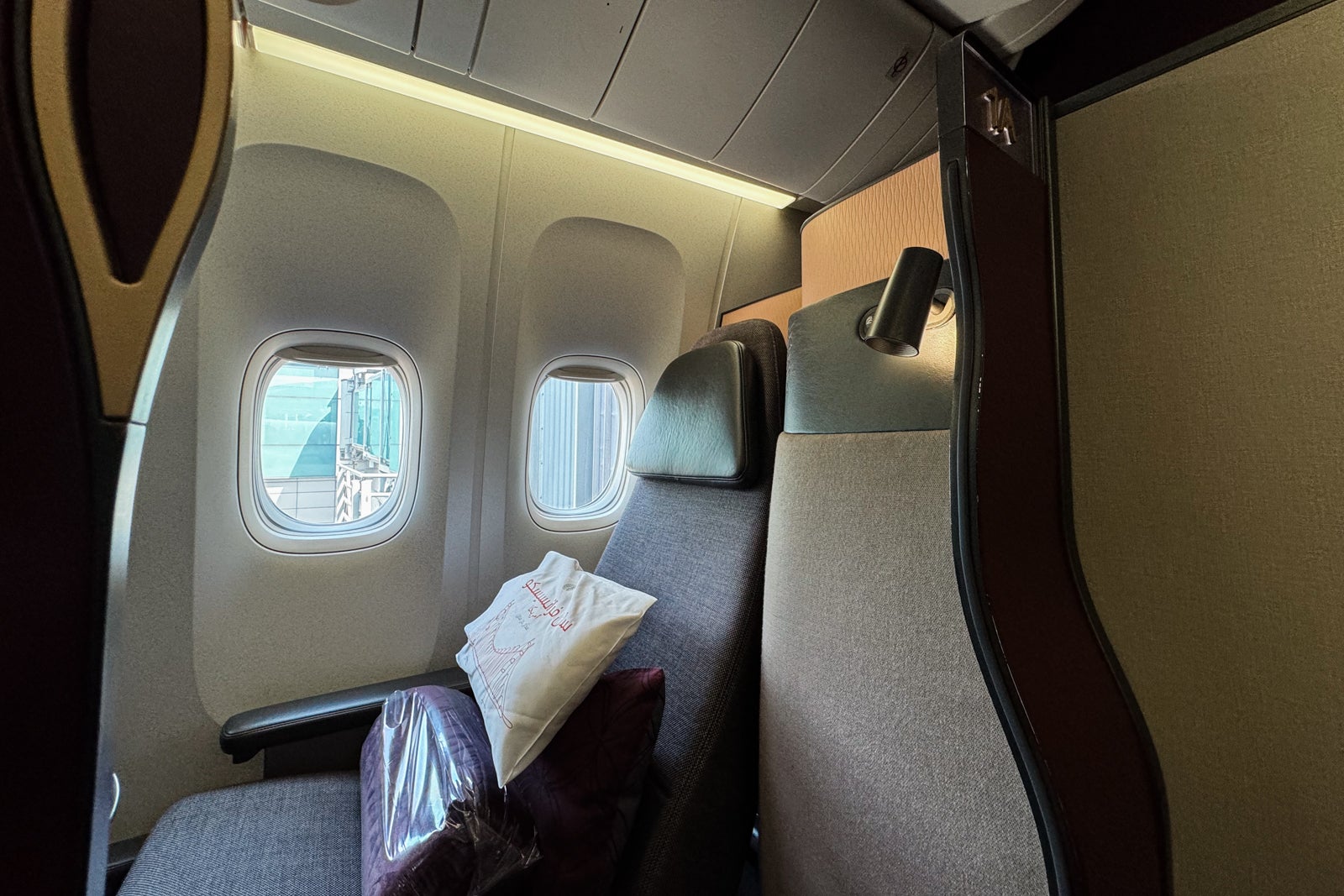On the surface, booking an airline ticket seems like a pretty straightforward process. You search for flights and then buy a ticket or redeem miles. But sometimes, it’s not so simple — especially when you add the complexity of partner bookings.
A partner booking occurs when the airline you booked your ticket with differs from the airline you’re flying. The airline you booked with, whether using cash or miles, is the ticketing airline. The airline you’re flying is the operating airline. Often, partners are within the same airline alliance, but that is not always the case, as many airlines also have nonalliance partners. Partner bookings can be even more involved when there are multiple operating airlines.
There are several reasons why you might make a partner booking. When booking a revenue flight with cash, you might find a better itinerary or find a lower price through a partner. When redeeming points or miles for a flight, a partner may have cheaper redemptions or you may not have enough miles in the operating airline’s loyalty program.
What are some of the issues that can arise, and how can you prevent them? Here are several mistakes you should try to avoid when booking with partners.
Not monitoring your reservation for changes
You should frequently check your reservation right up until departure time to make sure there have been no schedule changes, cancellations or even any aircraft swaps that could potentially boot you from the seat you selected. Many people refer to this as “gardening” your reservation.
Airlines can and do make schedule changes, and they can cancel flights anytime between the time you book and your departure date. And you’re more likely to have changes to your flights the earlier in advance you book. You may be notified of a schedule change, but I wouldn’t depend on it. Some airlines do a good job of notifying travelers about changes to upcoming travel, while others don’t, even if they have your contact information. If you have a partner booking, you’ll want to make sure the operating airline has your contact information as well, and not just the ticketing airline.
If your booking involves travel on multiple airlines, be aware of schedule changes so that modifications to one leg of your journey don’t cause you to miss your next flight on a different airline.
Sometimes the ticketing airline will open up space or be willing to rebook you on its own metal if your flight on the operating airline is canceled or there is a schedule change that interferes with the rest of your itinerary.
This happened to me recently. I was notified by email of what seemed like a minor schedule change on an award reservation booked with Delta SkyMiles that included flights on both Delta Air Lines and WestJet. Luckily, I didn’t take that email at face value because when I went to look at my itinerary on Delta’s website, it wasn’t a simple, minor change.

Daily Newsletter
Reward your inbox with the TPG Daily newsletter
Join over 700,000 readers for breaking news, in-depth guides and exclusive deals from TPG’s experts
My Delta flight did have a small schedule change, but my WestJet flight had been completely canceled. I was automatically booked on an entirely new itinerary that required two stops instead of one, and I would have arrived nine hours later than I initially intended to. So, I used Delta’s online chat feature and requested to be rebooked on flights that were solely on Delta metal and would get me to my destination closer to my original arrival time. While an email from Delta spurred me to take a look at my reservation again, I do tend to garden my reservations regularly, so I would have caught the change before travel.
Not comparing award redemption rates with multiple partners
If you have points and miles in various loyalty programs, you may have several different ways to book the same itinerary.
Let’s say you want to fly Qsuite, Qatar Airways’ business class, from the U.S. to Doha. A points and miles novice may think you can only book Qatar Airways flights with Avios, the currency of Qatar’s Privilege Club loyalty program. But that’s not the case.
Qatar is a member of the Oneworld alliance, and its flights can be booked with miles from several partner airlines, including American Airlines and Alaska Airlines. Each airline charges different redemption rates, so it is important to research the different programs, search for the flights you want to book and learn where the sweet spots are for redemptions in each program.
Another factor to consider is the taxes and fees on award redemptions with partners. Some airline programs might charge fewer miles but then tack on expensive fuel surcharges or extra booking fees, while others have lower fees but charge more miles.
Related: Quick Points: Book partner awards at fixed rates using AAdvantage miles
Not confirming award space before transferring points and miles
Unfortunately, sometimes flights show up that can’t actually be booked when you’re searching online for award travel. This is known as “phantom award space.” While annoying when it happens, it’s even worse when you’ve already transferred points from one of the programs with flexible rewards, like Chase Ultimate Rewards or American Express Membership Rewards, because you typically cannot reverse those transfers.
Phantom space can be especially prevalent on partner bookings as sometimes partners don’t have the same access to the seats as the airline flying the route, or they don’t update availability as quickly or as often as the operating airline.
Some things you can do to avoid phantom award space include calling the partner airline (whose miles you want to redeem) to see if the award can be booked by phone, and checking with other partners to see if the award is available there.
Assuming your reservation has been properly ticketed
In most instances, when you book a flight with a partner airline, the ticket is not issued immediately. The confirmation number you receive when booking — also known as the passenger name record (aka the PNR) or record locator — does not mean your reservation has been ticketed. The way to know your reservation has been ticketed is when you have a ticket number.
In some cases with partner bookings, ticketing can take several days. The partner airline you book the reservation with typically has to confirm availability and request the ticket from the airline operating the flight. Sometimes reservations fail to ticket, which will cause your booking to be canceled — sometimes, you may not be notified.
If you can’t find your ticket number or cannot verify the reservation has been ticketed by checking online, don’t be afraid to pick up the phone and call the airline for confirmation. And if there’s a schedule change and you’re rebooked on a different flight, be sure to follow up to ensure the new flight has been ticketed properly.
Not understanding who ‘controls’ the ticket or who to contact for issues
Schedule changes, delays and cancellations can sometimes be trickier to handle with partner bookings. Oftentimes, the airline you’re flying will tell you to contact the airline you booked the ticket with to handle rebooking or other questions.
If it’s more than 24 hours before your travel, the ticketing airline “owns” the ticket and can make changes to it. If it’s less than 24 hours before travel, the operating airline now owns the ticket and can make changes or rebook you if delays or cancellations occur. This happened to me a few years ago when I was traveling from Buenos Aires back to the U.S.
I used British Airways Avios to book a flight on American Airlines. When I got to the airport in Buenos Aires, I learned that the flight had just been canceled. I was able to deal with American’s customer service at the check-in desk because the flight was scheduled to depart in two hours. American rebooked me on the flight the next day even though I had booked with Avios. However, that was a simple nonstop flight. If your first flight is canceled and you’re connecting to another flight on a different airline, you may still need to contact the airline you made the booking with.
Unfortunately, sometimes the airlines themselves either don’t know or don’t want to take responsibility for issues on partner bookings and play the blame game. That was the case this past summer with friends of Nick Ewen, TPG’s senior editorial director, when there was a schedule change — their tickets didn’t reissue properly, and then weather delayed their first flight.
“They proceeded to go back and forth with JetBlue and Condor customer service, where they couldn’t get any help to get the ticket reissued,” Nick explained. “JetBlue knew the weather issue was its fault, so it tried to get them rebooked, but Condor still had ‘control’ over the ticket in the system. When he called Condor, they kept saying there was nothing they could do because JetBlue was at fault.”
Nick’s friends wound up paying out of pocket for new tickets and expenses due to an unplanned overnight hotel stay but have been refunded for their original tickets and are filing a travel insurance claim for the new tickets.
Related: Flight canceled or delayed? Here’s what to do next
Not crediting your miles to the correct airline
In cases where you make a partner booking with cash (as opposed to miles), you’ll be eligible to earn miles for your travel. So be sure to consider in advance where it’d be best to credit your miles earned.
If you’ve booked on an international airline that you rarely travel with, you may be better off crediting the miles to a partner program that you use more often. And different programs have different earning rates, so you may also want to consider how many miles you’d earn with different partners.
Bottom line
Partner bookings can be a great way to save miles on award travel or cash on revenue tickets. However, they can make things slightly more complex than booking directly with the operating airline. Being aware of the potential pitfalls in advance can help you quickly rectify any issues that may arise.
Related reading:



